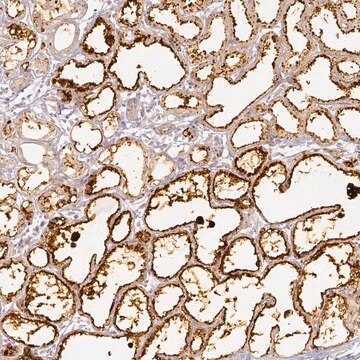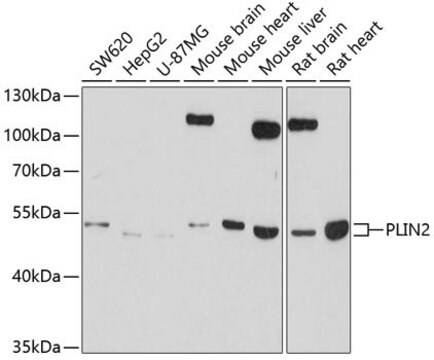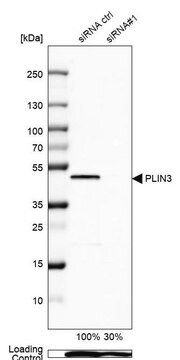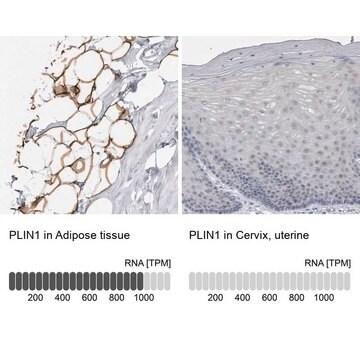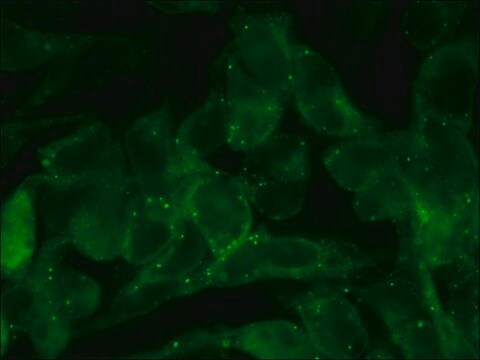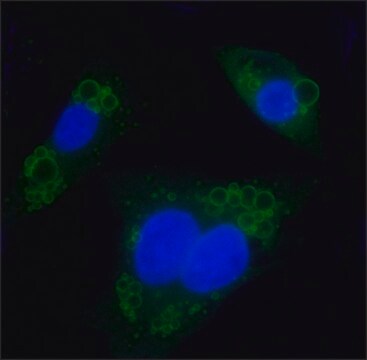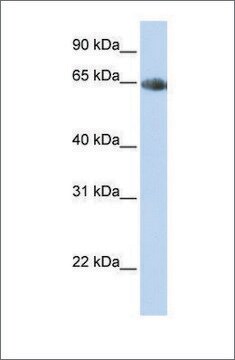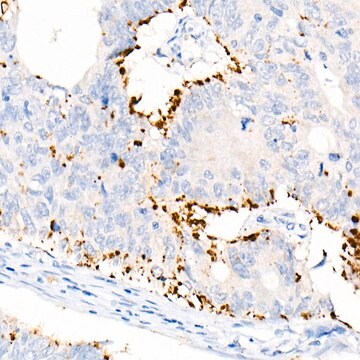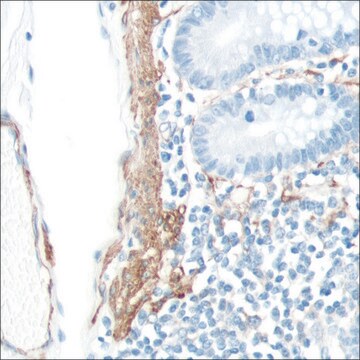SAB4200452
Anti-ADFP / PLIN2 antibody, Mouse monoclonal
clone ADFP-5, purified from hybridoma cell culture
Synonym(s):
Adipophilin, Plin2 Antibody, Plin2 Antibody - Monoclonal Anti-ADFP / PLIN2 antibody produced in mouse, Anti-ADRP, Anti-Perilipin 2, Monoclonal Anti-ADFP / PLIN2 antibody produced in mouse
About This Item
Recommended Products
biological source
mouse
Quality Level
conjugate
unconjugated
antibody form
purified from hybridoma cell culture
antibody product type
primary antibodies
clone
ADFP-5, monoclonal
form
buffered aqueous solution
mol wt
antigen ~48 kDa
species reactivity
human
concentration
~1.0 mg/mL
technique(s)
indirect immunofluorescence: 5-10 μg/mL using human HepG2 or SH-SY5Y cells
western blot: 2-4 μg/mL using whole extracts of HEK-293T cells overexpressing human ADFP
isotype
IgG1
UniProt accession no.
shipped in
dry ice
storage temp.
−20°C
target post-translational modification
unmodified
Gene Information
human ... PLIN2(123)
General description
Specificity
Immunogen
Application
Biochem/physiol Actions
Physical form
Storage and Stability
Disclaimer
Not finding the right product?
Try our Product Selector Tool.
Storage Class Code
12 - Non Combustible Liquids
WGK
WGK 1
Flash Point(F)
Not applicable
Flash Point(C)
Not applicable
Choose from one of the most recent versions:
Certificates of Analysis (COA)
Don't see the Right Version?
If you require a particular version, you can look up a specific certificate by the Lot or Batch number.
Already Own This Product?
Find documentation for the products that you have recently purchased in the Document Library.
Our team of scientists has experience in all areas of research including Life Science, Material Science, Chemical Synthesis, Chromatography, Analytical and many others.
Contact Technical Service